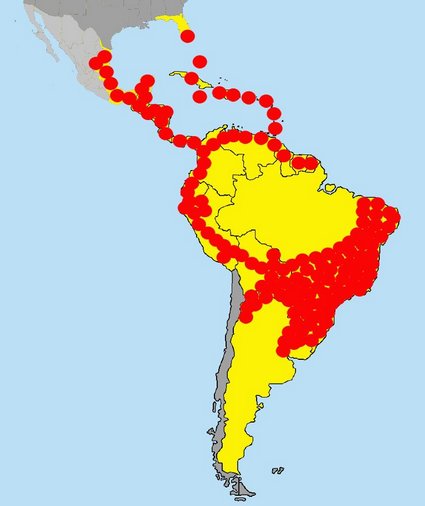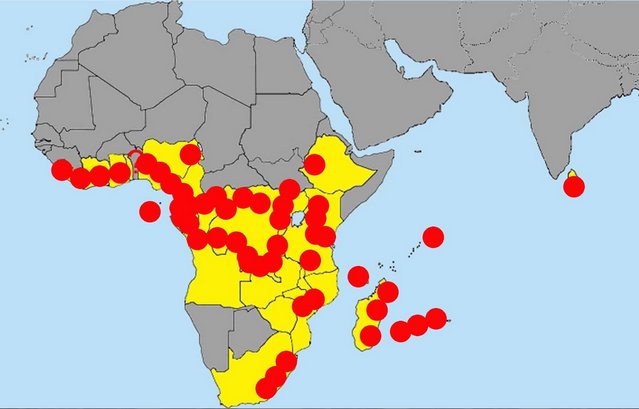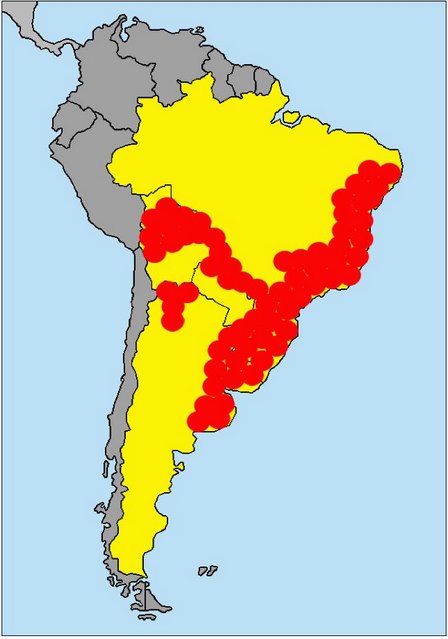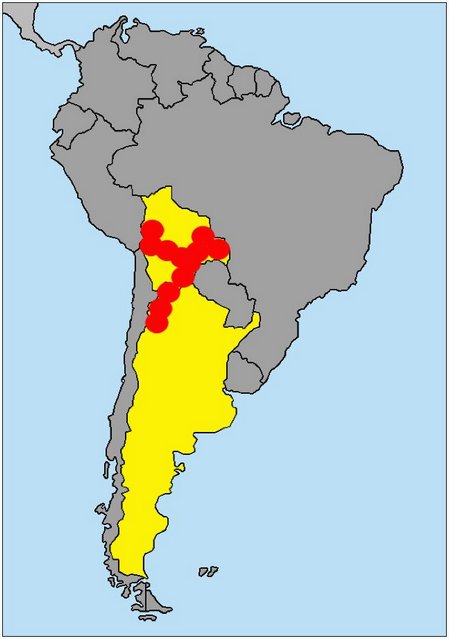** RHIPSALIS **
** PLANTS THAT ARE **
** PLEASANT TO GROW **
____________________
CHAPTER 4
Rhipsalis around the world.
_______________
Different neighbouring genera, distribution, number of species
Rhipsalis (in the broad sense) includes in this article three genera of cacti, most often epiphytic, i. e. growing on another plant without parasiting it.
This grouping does not claim to have scientific value.
It is only a convenience to group together "neighbouring" plants.
The first genus is the genus Rhipsalis in the strict sense. It is the genus of epiphytic cacti that has the largest number of species (about 50).
Rhipsalis in the strict sense are the only cactaceous plants that can have their original habitat in the Old World and also on the American continent (see map).
On the American continent, they occupy Central America, the Caribbean islands, Florida and the North and East of Brazil in particular. They are mainly found in tropical and subtropical forests.

© Joël Lodé: Taxonomy of Cactaceae.
Distribution of Rhipsalis (in the strict sense) in America
_________
In the Old World, they are found in the intertropical zone of Africa, in Madagascar and neighbouring islands, as well as on the island of Sri Lanka.
The presence of Rhipsalis in the Old World remains a mystery. Several hypotheses have been put forward: late dispersal from the American continent to the African continent by bird droppings, marine currents or sailors who used them as a substitute for mistletoe, because their fruits resemble those of mistletoe.

Rhipsalis baccifera berries, resembling mistletoe berries.

© Joël Lodé: Taxonomy of Cactaceae.
Distribution of Rhipsalis (in the strict sense) in Africa and Asia
Another hypothesis of the distribution of Rhipsalis in the old world is the migration from the American continent to Africa, when the continents were still close to each other. The last hypothesis (link mentioned at the end of this article) would be that the Rhipsalis appeared on the Gondwana continent, before the separation of the America and Africa plates.
_________
The second genus in Rhipsalis (in the broad sense) is the genus Lepismium, which has 5 species.

© Joël Lodé: Taxonomy of Cactaceae.
Lepismium are found mostly in tropical humid forests.
_________
The third genus in Rhipsalis in the broad sense is the genus Pfeiffera, which has 6 species.

© Joël Lodé: Taxonomy of Cactaceae.
They are found in Argentina and Bolivia.
The three genera are neighbouring and many taxa have changed from one genus to another, for morphological reasons, but also for phylogenetic reasons (classification of taxa according to DNA analysis)
___________________________________
_________________________________________